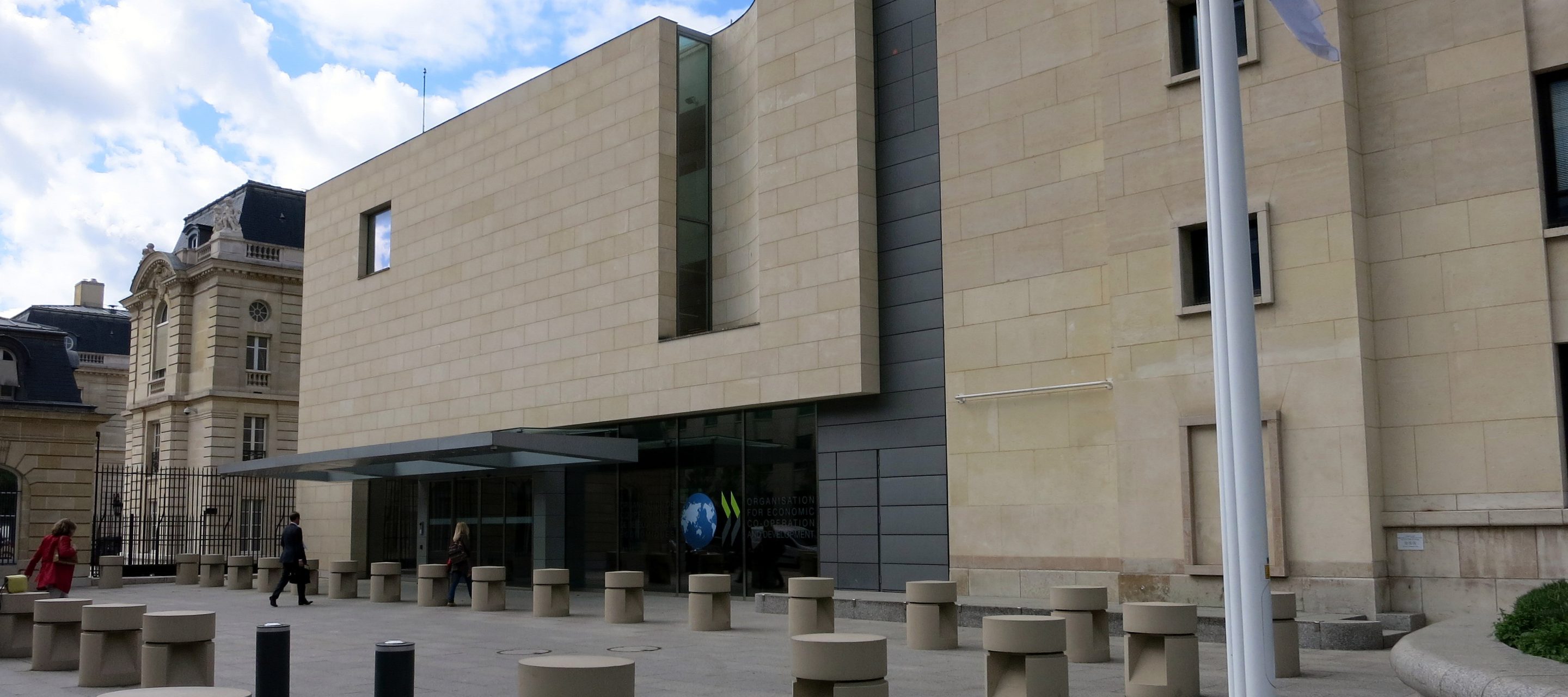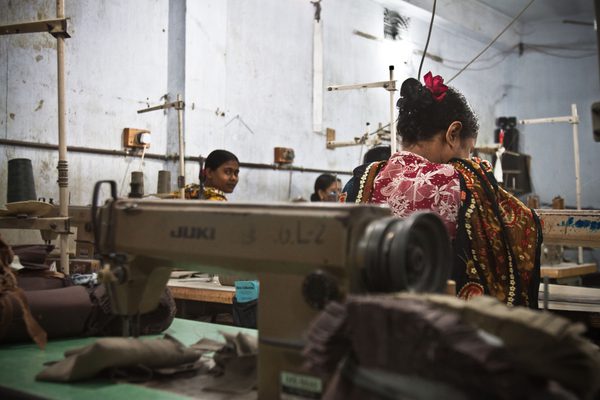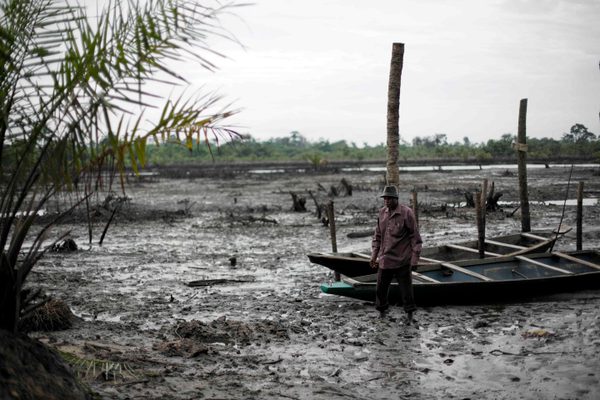Who should assess complaints under the OECD Guidelines – civil servants or independent experts?
26 February 2016

A lot of faith has been placed on National Contact Points (NCPs) as a non-judicial remedy. But can this be justified when those assessing complaints tend to be government officials with a background in trade and business, rather than human rights experts?
It seems intuitive that the background and expertise of those assessing complaints will have a bearing on the outcome, with particular consequences for those seeking to use the NCP mechanism to obtain redress.
This would appear to be confirmed, at least with regard to the UK NCP, in a study undertaken by Amnesty International and released in February 2016. One of the conclusions that can be drawn from this study is that in order not to belie the expectations placed on NCPs, governments must take immediate steps to strengthen human rights expertise within their NCP teams.
The profile of the NCP complaint mechanism has risen considerably since Professor Ruggie’s ‘Protect, Respect and Remedy’ framework was embodied in the UN Guiding Principles on Business and Human Rights in 2011. Since then, NCPs have become positioned as a form of remedy for victims of human rights abuses committed by business enterprises:
“We also commit to strengthening mechanisms for providing access to remedies including the National Contact Points (NCPs) for the OECD Guidelines for Multinational Enterprises. In order to do so the G7 will encourage the OECD to promote peer reviews and peer learning on the functioning and performance of NCPs. We will ensure that our own NCPs are effective and lead by example.”
- G7 Leaders' Declaration, Germany, June 2015
This raises a fundamental dilemma. While most non-judicial remedial mechanisms for cases of alleged misconduct by companies are operated by bodies at arm’s length of government, the vast majority of NCPs are located within government departments. How can NCPs perform effectively in providing access to remedy when most of them are located within branches of government whose primary purpose is the promotion of trade and investment?
It is reasonable to infer that such a role would be riven with conflicts of interest and pressures to give businesses an easy ride, particularly with regard to complaints that are politically sensitive because they involve companies that provide services to a government’s security agencies. Telecommunications companies and private security contractors are the most obvious examples, because upholding a complaint against them might well implicate the NCP’s own government in human rights abuses, or that of its political allies.
The UK NCP provides perhaps the best testbed for this dilemma, both because it has received by far the most complaints in recent years - 41 cases since 2010 - and because it has a reputation as one of the best-performing NCPs. It also happens to be located in the Department of Business, Innovation and Skills which exists primarily to promote UK business interests.
In this context, Amnesty International’s study of the UK NCP’s handling of complaints provides some revealing findings. The study focuses on 25 human rights complaints submitted to the UK NCP since the OECD Guidelines were revised in 2011 to put greater emphasis on human rights in keeping with the UN Guiding Principles on Business and Human Rights. A wide range of business sectors is represented in these 25 cases. Telecommunications companies have been subject to the most complaints (9), followed by extractive companies (6), security companies (3) and banks (3).
The most astonishing finding is that 60% of all these complaints were rejected at the initial assessment stage. A further 12% were referred to other countries’ NCPs. All nine complaints against telecommunications companies were rejected.
Behind this headline statistic is the lack of consistency in the ways complaints are dealt with, and a tendency to give more weight to the evidence provided by companies in their defence than the evidence provided by complainants. The UK NCP has taken a particularly tough line on adequacy of sources and sufficiency of evidence in those cases involving telecommunications companies, which relied on sources that had either been leaked or destroyed, or which were already available to the general public.
While companies are allowed to cite commercial confidentiality as a pretext for withholding relevant information, NGOs submitting complaints are expected to come up with new evidence that is not already in the public domain. This is practically impossible in the cases against telecommunications companies, where the main evidence available revolves around Edward Snowden’s leaked documents.
Bizarrely, the UK NCP is reluctant to address future threats to human rights arising from a company’s proposed activities, such as an open-pit coalmining project in a highly populated region of Bangladesh, where UN human rights experts have warned of the serious human rights violations that would occur, including damage to ecosystems and impacts on rights to water, food, livelihood and housing. The UK NCP’s downplaying of future impacts is at odds with the preventive purpose of the OECD Guidelines and the specific requirements of the Human Rights chapter that companies “avoid causing or contributing to adverse human rights impact”.
and that they “carry out human rights due diligence as appropriate to their size, the nature and context of operations and the severity of the risk of adverse human rights impacts.”
The UK NCP makes it particularly difficult for complainants to substantiate that companies have ‘caused’ or ‘contributed’ to adverse human rights impacts. In a case relating to the social and environmental impacts of an oil and gas facility on a village in Kazakhstan, the NCP decided that the alleged impacts were not directly related to the company’s operations but to the state, because the obligation to resettle under Kazakh law fell to the government. This misses the point that the human rights impacts were caused by the company’s activities. The fact that the state was obliged to resettle the households does not change the nature of the impact or of the company’s responsibilities under the Guidelines.
The NCP has been inconsistent in how it requires complainants to substantiate that companies are “directly linked by a business relationship” to adverse human rights impacts. One case against an IT company supplying ‘malware’ products to the government of Bahrain was accepted on the grounds that there may have been a link between the company’s products and the alleged human rights impacts on activists protesting against the Bahraini government. This case was accepted despite the impossibility of proving conclusively that the software products were a factor in the human rights violations committed by government agents.
A different threshold was applied in the case against a UK telecommunications company, where it was alleged that its fibre optic cables were providing communications between two US military bases, one in the UK and one in Djibouti, facilitating the launch of drone strikes against targets in Yemen that were causing many civilian casualties in breach of international law. In this case, the UK NCP did not accept the complaint on the grounds that the human rights impacts were not linked by a business relationship, in so far as the complainants could not prove that the fibre optic cables operated by the company were necessary for the drone operations conducted by the US.
While these may seem very fine points, they illustrate the reality that human rights complaints against companies for breaches of the OECD Guidelines often revolve around complex issues that civil servants are not ideally placed to arbitrate, especially if those involved are not human rights experts or if the cases are politically sensitive. The findings of Amnesty International’s study provide many examples of interpretations by the NCP that reveal basis misunderstandings of human rights concepts and norms, and that lack compatibility with the substantive requirements of the OECD Guidelines.
It is difficult to avoid the conclusion that the shortcomings identified in this study are far-reaching and cannot be resolved by a bit of tinkering with the complaints handling process. This is why Amnesty International calls for the UK NCP to be reconstituted with an Independent Panel of Experts to handle the initial assessment and examination of complaints. While this would not be a panacea for all the issues identified in the study, it could be a significant step forward in ensuring a mechanism that is more accessible to complainants and offers greater coherence with the human rights elements of the Guidelines.
The outcome we want to see is more cases accepted for examination, more companies that breach the Guidelines being cited, improvements in company conduct as a result of these complaints being brought and, above all, improvements in the situation of communities adversely affected by the activities of business. This should not be too much to ask from a complaint mechanism that is intended to address the human rights impacts of companies, has been showcased for its success in doing so, but appears to be flawed in so many respects.




